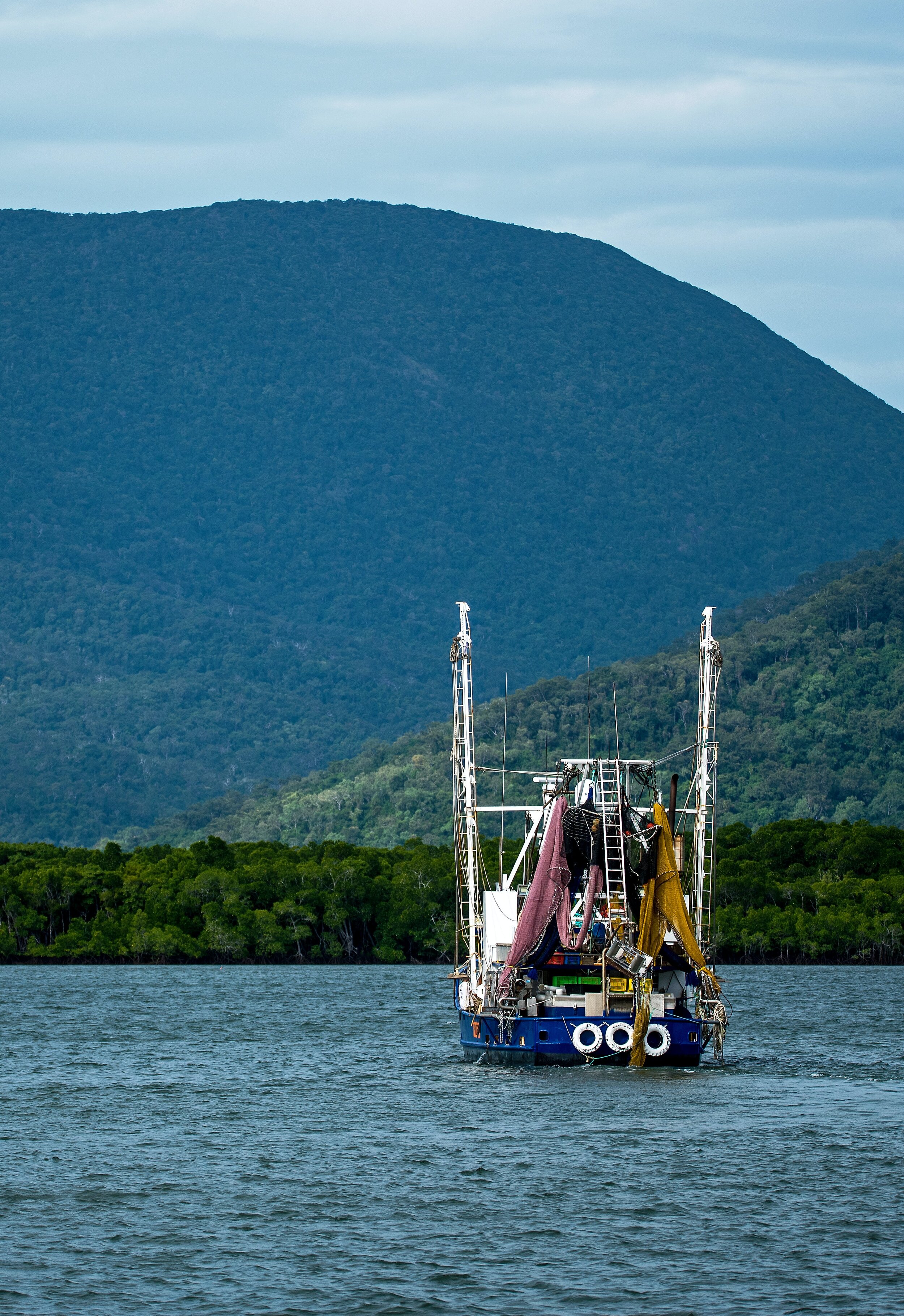On January 14, 2021, Customs and Border Protection (CBP) issued a Withhold Release Order (WRO) banning all cotton and tomatoes and all goods made with cotton and tomatoes from the Xinjiang Uyghur Autonomous Region (XUAR) in China from entering the United States. Under Section 307 of the Tariff Act of 1930, CBP has the authority to prohibit the importation of all goods produced with forced or prison labor.
CBP issues WRO against XPCC
On Wednesday, December 2, Customs and Border Protection (CBP) released a Withhold Release Order (WRO) against cotton and cotton products from the Chinese state-owned company Xinjiang Production and Construction Corps (XPCC) and all its subordinates and affiliated entities. In August, CAL had joined other rights groups in writing a petition, asking CBP to issue a regional WRO which would ban all cotton products from the Xinjiang Uyghur Autonomous Region in China.
Combating Corporate Impunity After Conflict: Opportunities in the Colombian Transitional Justice Process
For months, CAL has worked on strategies designed to hold corporate actors accountable for their role in the Colombian armed conflict. A conflict that lasted for over five decades, displaced millions of families, and left thousands of casualties. A few months ago, we published this blog which provides background on the Colombian armed conflict and CAL’s multi-layered project developing unique legal strategies to hold corporate actors responsible for their conduct.
Grasping at ATS Straws: Piracy & Human Rights Abuses on the High Seas
Piracy may seem like historical fiction, but pirates remain active around the world today. For example, criminal organizations in Somalia looting commercial vessels have recently gained global attention. However, piracy, as it is understood in international law, is also prevalent in fishery operations that engage in forced labor, human trafficking, and other human rights abuses. US companies source seafood from these violent fishery vessels and sell them to American consumers every day.
Amicus Roundup: Eighteen Briefs Filed in Support of Child Trafficking Victims in Nestlé USA v. Doe I
On Wednesday, October 21, 2020, eighteen groups submitted amicus briefs to the Supreme Court in the Nestlé USA v. Doe I case in support of Respondents – a group of Malian plaintiffs who allege they were trafficked as children into Cote d’Ivoire and forced to work without pay on cocoa farms. The Supreme Court granted cert on the case on two questions: whether US corporations can be liable under the Alien Tort Statute (ATS) and whether US corporations can be liable for knowingly aiding and abetting crimes that occur outside the US from their US corporate headquarters.
Ken Saro-Wiwa’s Legacy & Why His Message Matters Now More than Ever
Today marks the 25th anniversary of human rights activist Kenule (Ken) Saro-Wiwa’s murder at the hands of the Nigerian government and allegedly backed by Shell. Saro-Wiwa was a voice for the Ogoni people—an indigenous group in Nigeria— that advocated for the Ogonis’ rights to control their own resources and environment, instead of being dominated by the government and corporate interests.
In 2020, Halloween Candy is (Still) Scary for People and the Planet
How, in 2020, can it be possible that nearly every piece of candy in a trick-or-treater’s bucket arrived there after a long journey that harmed both people and the planet? This post focuses on a few of the negative impacts associated with key ingredients in Halloween candy: cocoa (forced child labor; deforestation), sugar (forced displacement; forced labor; excessive water use), milk (climate change; abusive working conditions), and palm oil (deforestation; human rights abuses). We offer some considerations for conscious consumers to take into account while candy shopping, all the while recognizing that we as a community of global citizens are not going to be able to buy our way out of this scary reality.
CAL Files Two Amicus Briefs in the Nestlé USA, Inc. v. Doe I Case at the Supreme Court
On October 21, 2020, Corporate Accountability Lab filed two amicus briefs in support of Respondents in the upcoming Nestle v. Doe case, about corporate liability under the Alien Tort Statute (ATS). Passed in 1789 by the First Congress, the ATS gives federal courts jurisdiction over tort claims, including for abuses of human rights brought by non-US citizens.
CBP Issues Five WROs Against Xinjiang Cotton, Hair Products, and Electronics
US Customs and Border Protection (CBP) released five Withhold Release Orders (WRO) banning products from the Xinjiang region in China, including cotton, electronics, and hair products. The WROs come amidst widespread criticism of the Chinese government on its treatment of the Uyghur and other Muslim and Turkic minorities in the Xinjiang region, which experts have stated represents “the largest-scale detention of religious minorities since World War II.”
Rights Groups Ask CBP to Stop the Importation of Forced and Prison Labor Goods From Xinjiang, China
For years, human rights defenders, journalists, and the international community have documented and denounced human rights abuses in the Xinjiang region in China, including what experts believe to be “the largest-scale detention of religious minorities since World War II.” Yet a number of major brands—including Adidas, H&M, Nike, and Patagonia—are still suspected of using forced labor from Xinjiang in their supply chains.
Using the Master’s Tools to Dismantle the Master’s House: 307 Petitions as a Human Rights Tool
On July 15, 2020, US Customs and Border Protection (CBP) issued a Withhold Release Order (WRO) for rubber gloves produced by two subsidiaries of Top Glove, the world’s largest rubber glove company. CBP issued the WRO based on reasonable belief that the subsidiaries were using forced labor, in this case debt bondage, to produce rubber gloves. In issuing this WRO, CBP blocked all imports of these rubber gloves into the US, closing the companies’ access to the US market.
Private Companies Producing with US Prison Labor in 2020: Prison Labor in the US, Part II
This post follows on from our post exploring the use of prison labor during the Covid-19 pandemic. It details the current forms that prison labor can take and, using what little public data is available, highlights some of the companies using prison labor in the United States.
If Prison Workers are Essential, We Should Treat Them Like It: Prison Labor in the US, Part I
This post explores the lessons that we can learn from the COVID-19 pandemic about the prison labor system in the United States and includes personal accounts from Charity Ryerson, CAL’s Executive Director.
Going Full Circle: The Parallels between Student Activism and Creative Legal Design
Legal Intern Amy Kato explores the parallels she’s discovered between the strategies she used as a student organizer in undergrad and CAL’s approach to fighting corporate impunity through legal design.
If Corporate Support of Black Lives were more “Walk” than “Talk”
What would the world look like if big businesses actually implemented Black Lives Matter (BLM) values throughout their business models? The short answer: very different. This post gives examples of the hypocrisy between corporate PR and business impacts on people of color. It imagines steps companies could take towards creating a world where anti-racist statements align with operations.
More Trouble Ahead for the ATS? SCOTUS Grants Cert in Nestle Case
The US Supreme Court just granted Nestlé’s cert petition in a case based on forced child labor in Côte d’Ivoire. Implications for the plaintiffs--former child slaves-- and the future of the Alien Tort Statute (ATS) are significant.
Using the False Claims Act as a Human Rights Tool
This post explores the viability of using the FCA in conjunction with the TVPRA to hold perpetrators of forced labor and human trafficking accountable.
Imagine that a company had a contract to provide food to US military personnel based in a foreign country. The company employed workers from a third country. However, the company held onto the workers’ passports, did not allow them to leave the facilities, and did not pay them for the full hours that they worked.
The Bostock Decision & Protections for LGBTQ+ Workers
Last Monday, the Supreme Court decided 6-3 that Title VII of the Civil Rights Act of 1964 prohibits employment discrimination based on sexual orientation and gender identity. Even though there are limitations in Bostock's application, we should still see it as a victory for equal rights. There are real exceptions to these federal protections (RFRA, small employers, etc.), and we need to continue to fight to close those loopholes so that no workers experience discrimination. But with such a conservative -- and often ideological -- Court, this is a big win that we should celebrate.
In Solidarity with those Demanding Justice & an end to White Supremacy
As feet march, glass shatters, sirens blare, and weapons fire across Chicago, the United States, and the world, Corporate Accountability Lab stands in solidarity with those demanding an end to white supremacy and racist police violence.
CAL & EarthRights Launch Updated Guide to Foreign Legal Assistance Statute, Allowing Attorneys Suing Companies Access to Discovery Process in the US
In 2019, CAL partnered with EarthRights International to update their Guide to the Foreign Legal Assistance statute. Given that the US is an increasingly difficult jurisdiction for transnational human rights cases against companies, this tool provides an opportunity for workers and community members to access key evidence located in the US even where they may not have been able to bring suit there.
























